
Romeo and Juliet is a tragedy written by William Shakespeare early in his career about the romance between two Italian youths from feuding families. It was among Shakespeare's most popular plays during his lifetime and, along with Hamlet, is one of his most frequently performed. Today, the title characters are regarded as archetypal young lovers.

Miriam Toews is a Canadian writer and author of nine books, including A Complicated Kindness (2004), All My Puny Sorrows (2014), and Women Talking (2018). She has won a number of literary prizes including the Governor General's Award for Fiction and the Writers' Trust Engel/Findley Award for her body of work. Toews is also a three-time finalist for the Scotiabank Giller Prize and a two-time winner of the Rogers Writers' Trust Fiction Prize.

Andrew Norman Wilson is an English writer and newspaper columnist known for his critical biographies, novels and works of popular history. He is an occasional columnist for the Daily Mail and a former columnist for the London Evening Standard. He has been an occasional contributor to The Times Literary Supplement, New Statesman, The Spectator and The Observer.
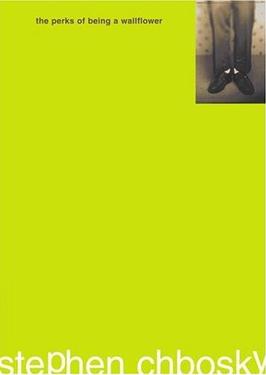
The Perks of Being a Wallflower is a 1999 young adult novel by American author Stephen Chbosky. Set in the early 1990s, the novel follows Charlie, an introverted and observant teenager, through his freshman year of high school in a Pittsburgh suburb. The novel details Charlie's unconventional style of thinking as he navigates between the worlds of adolescence and adulthood, and attempts to deal with poignant questions spurred by his interactions with both his friends and family.

Maggie Cassidy is a novel by the American writer Jack Kerouac, first published in 1959. It is a largely autobiographical work about Kerouac's early life in Lowell, Massachusetts, from 1938 to 1939, and chronicles his real-life relationship with his teenage sweetheart Mary Carney. It is unique for Kerouac for its high school setting and teenage characters. He wrote the novel in 1953 but it was not published until 1959, after the success of On the Road (1957).

Twilight is a 2005 young adult vampire-romance novel by author Stephenie Meyer. It is the first book in the Twilight series, and introduces seventeen-year-old Isabella "Bella" Swan, who moves from Phoenix, Arizona, to Forks, Washington. She is endangered after falling in love with Edward Cullen, a 103-year-old vampire frozen in his 17-year-old body. Additional novels in the series are New Moon, Eclipse, and Breaking Dawn.

Netochka Nezvanova is an unfinished novel by Fyodor Dostoevsky. It was originally intended as a large scale work in the form of a 'confession', but a background sketch of the eponymous heroine's childhood and adolescence is all that was completed and published. According to translator Jane Kentish, this first publication was intended as "no more than a prologue to the novel". Dostoevsky began work on the novel in 1848 and the first completed section was published at the end of 1849. Further work was prevented by the author's arrest and exile to a Siberian detention camp for his part in the activities of the Petrashevsky Circle. After his return in 1859, Dostoevsky never resumed work on Netochka Nezvanova, leaving this fragment forever incomplete.

David Alan Nicholls is a British novelist and screenwriter.

"Infant Joy" is a poem written by the English poet William Blake. It was first published as part of his collection Songs of Innocence in 1789 and is the counterpart to "Infant Sorrow", which was published at a later date in Songs of Experience in 1794.
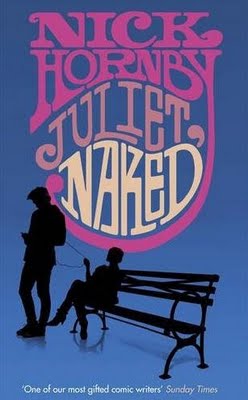
Juliet, Naked is a novel by the British author Nick Hornby published in 2009. It tells the story of Annie, the long-suffering girlfriend of obsessed music fan Duncan, and the object of his obsession, singer-songwriter Tucker Crowe.

One Day is a novel by David Nicholls, published in 2009. A couple spend the night together on 15 July 1988, knowing they must go their separate ways the next day. The novel then visits their lives on 15 July every year for the next 20 years. The novel attracted generally positive reviews and was named 2010 Galaxy Book of the Year. Nicholls adapted his book into a screenplay; the feature film, was released in August 2011, and a television series for Netflix, premiered on 8 February 2024.
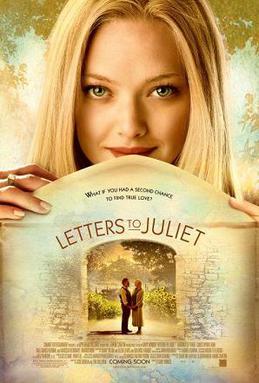
Letters to Juliet is a 2010 American romantic comedy-drama film starring Amanda Seyfried, Christopher Egan, Gael García Bernal, Vanessa Redgrave and Franco Nero. This was the final film of director Gary Winick before his death on February 27, 2011. The film was released theatrically in North America and other countries on May 14, 2010. The idea for the film was inspired by the 2006 non-fiction book Letters to Juliet, by Lise Eve Friedman and Ceil Jann Friedman, which chronicles the phenomenon of letter-writing to Shakespeare's most famous romantic character.

Sweet Tooth is a novel by the English writer Ian McEwan, published on 21 August 2012. It deals with the experiences of its protagonist, Serena Frome, during the early 1970s. After graduating from Cambridge she is recruited by MI5, and becomes involved in a covert programme to combat communism by infiltrating the intellectual world. When she becomes romantically involved with her mark, complications ensue.
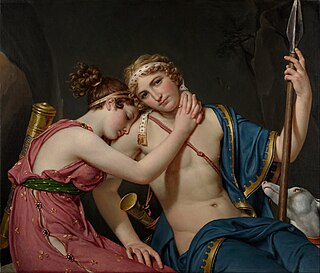
The Farewell of Telemachus and Eucharis is a painting from 1818 by Jacques-Louis David, now in the J. Paul Getty Museum in Los Angeles, California. Painted during David's exile in Brussels, it was purchased by the Count von Schönborn-Wiesentheid. It depicts Telemachus and Eucharis, two characters in François Fénelon's 1699 novel Les Aventures de Télémaque, inspired by Homer's Odyssey. The artist's last painting of a couple from mythology, it is a pendant painting to his Love and Psyche.
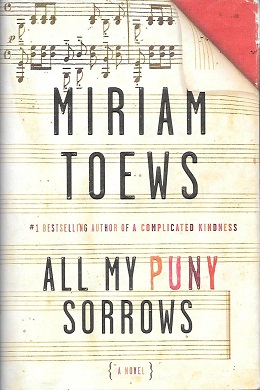
All My Puny Sorrows is the sixth novel by Canadian writer Miriam Toews. The novel won the 2014 Rogers Writers' Trust Fiction Prize, and was shortlisted for the 2014 Scotiabank Giller Prize, the 2015 Folio Prize for Literature, and the 2015 Wellcome Book Prize. Toews has said that the novel draws heavily on the events leading up to the 2010 suicide of her sister, Marjorie.

The Best of Adam Sharp is a 2016 novel by Australian novelist Graeme Simsion. The work was first published on 19 September 2016 in Australia / New Zealand by Text Publishing. English-language rights have been sold worldwide. Translation rights have been sold in Czech, Estonian, French, German, Hebrew, Hungarian, Italian, Dutch, and Polish. Movie rights have been optioned to Vocab Films with Toni Collette attached to play the role of Angelina.

Phoenix Hathaway is a fictional character from the Channel 4 soap opera Hollyoaks, played by Tylan Grant. Grant made his first appearance as the character in episode 4947, originally broadcast on 10 July 2018. Phoenix is initially introduced as Brooke, an autistic teenage girl who is fostered by the Osborne family. He was the first autistic regular character in a soap opera and Grant marked the first BAME actor to portray an autistic character in a television series. Phoenix's storylines in the soap have included being adopted by the Osbornes following the death of his mother, his relationships with Imran Maalik and Oliver Morgan, being bullied by Juliet Nightingale, becoming pregnant and putting his son up for adoption and coming to the realisation that he is non-binary, but later transitioning to a trans man and changing his name to Phoenix. Grant quit his role as Phoenix and made his final appearance on 31 January 2024, when Phoenix and Shing Lin Leong move to London.

Agent Running in the Field is a 2019 novel by British writer John le Carré, published on 17 October 2019. It was le Carré's final novel to be published before his death in 2020.
Heartstopper is an ongoing LGBTQ+ young adult graphic novel and webcomic series written and illustrated by British author Alice Oseman. It follows the lives of Nick Nelson and Charlie Spring as they meet and fall in love. The series is an expanded adaptation of Oseman's 2015 novella, Nick and Charlie, although the characters originally appeared in her 2014 novel, Solitaire.
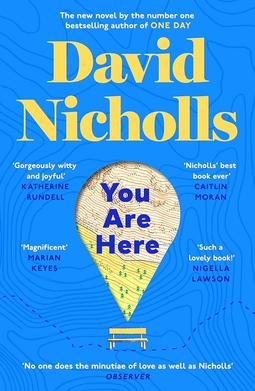
You Are Here is a 2024 romance novel by British writer David Nicholls. The novel centers on two middle-aged protagonists, who unexpectedly find themselves together on a long-distance walking trail across northern England after being brought together by a mutual friend.



















